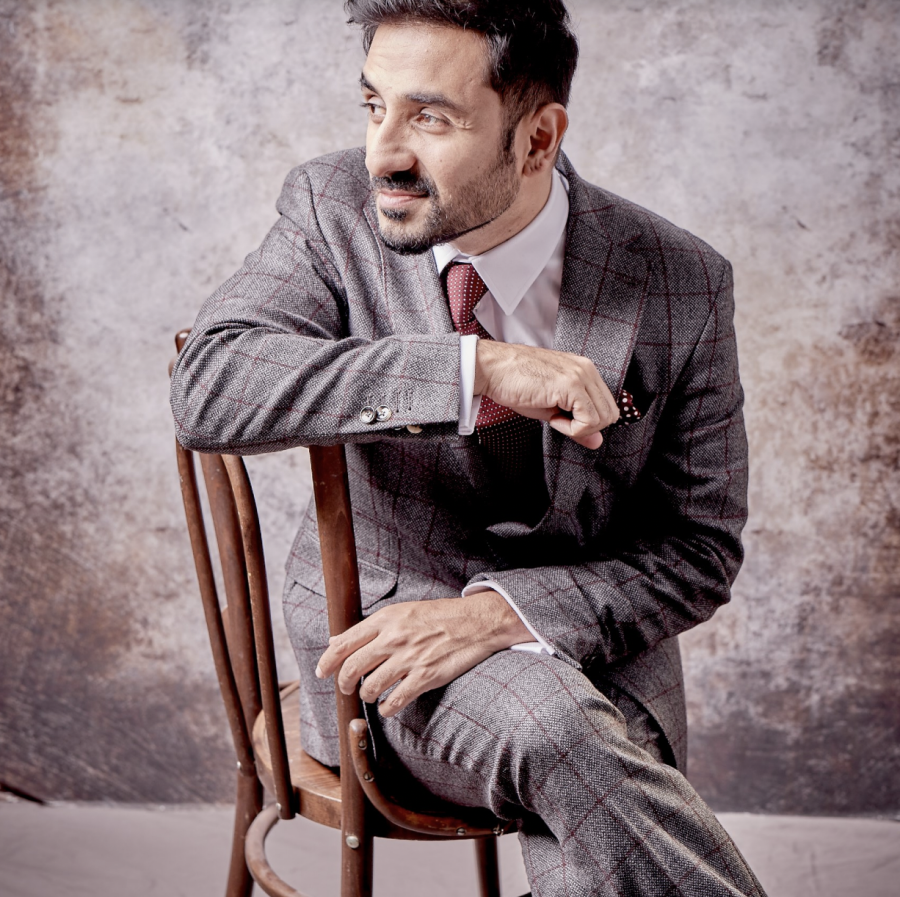Comedian Vir Das talks globalization of comedy, making his dreams come true
March 30, 2023
In 2021, comedian Vir Das came under fire for his viral speech “I Come From Two Indias,” a monologue that landed Das several criminal charges from Indian officials, including counts of defamation and denigrating India on foreign soil. The comedian’s new Netflix special “Landing,” released in December, reflects on the aftermath of the speech and the evolving world of global comedy.
On April 14, Das will bring his stand-up to the Paramount Theatre. The Daily Texan sat down with Das to talk about the globalization of comedy, exploring politics through comedy and his future plans.
The Daily Texan: What has the response to “Landing” been like?
Vir Das: It’s been an incredible response. This is the fourth (special), and by now you can gauge the response, and it seems to have done very well. I think once you get into further specials, you’re setting a different benchmark for what you consider (a) good performance.
DT: When you come and perform in the U.S., what type of audiences do you tend to see, and how much do you think about what audiences you’ll be performing to?
VD: If you commit to the idea that you’re a global voice, which I have, it becomes a little more important to just do you rather than reverse engineer for an audience on an algorithm. You just have to be like, “This is who I am, and this is what my life experiences are.” Hopefully, when you come to the show, I’m taking you somewhere you’ve never been before. The fact that it may possibly be alien to you goes from being a drawback to almost being your strength.
DT: Why do you use comedy as a medium to talk about difficult topics?
VD: What you have to realize is that (with) most comedians, we’re just telling jokes, right? At the end of the day, your experience will imprint itself onto your material. Perhaps as you get older, you get more conscious about the world that you live in, and politics becomes more important to you. When you’re 21, it doesn’t really matter who the president or prime minister is because you’ve got homework, parents and other stakes, but when you’re 40, it does matter, so that does make itself into your material.
DT: What’s your favorite part about the audience connection when performing live?
VD: I enjoy the silence. I enjoy (people watching) to see what happens next in the story. At some point in my show, we transition from talking about the world to talking about my world, and hopefully, those things connect enough during the course of a show. So, when you see that they’re listening to a story with the utmost captivity, that’s the high point for me.
DT: What advice do you have for younger comedians or fans of your comedy?
VD: Whether you know yourself or not, it is important that the audience knows you. You must always strive to personally imprint upon whatever art you’re trying to put out there. Anybody can make you laugh. Anybody can make you cry. Anybody can make you dance – but can they make you feel like you know them? That’s the mark of a great artist. So really, don’t be afraid. Even if you’re too young and you haven’t found your voice yet, or even if you have and don’t quite know who you are. Whatever this version of you is, don’t be afraid to unabashedly put it out there. Really put it out there and deal with whatever comes with that. Because even if they love you or they hate you, that means they know you.



